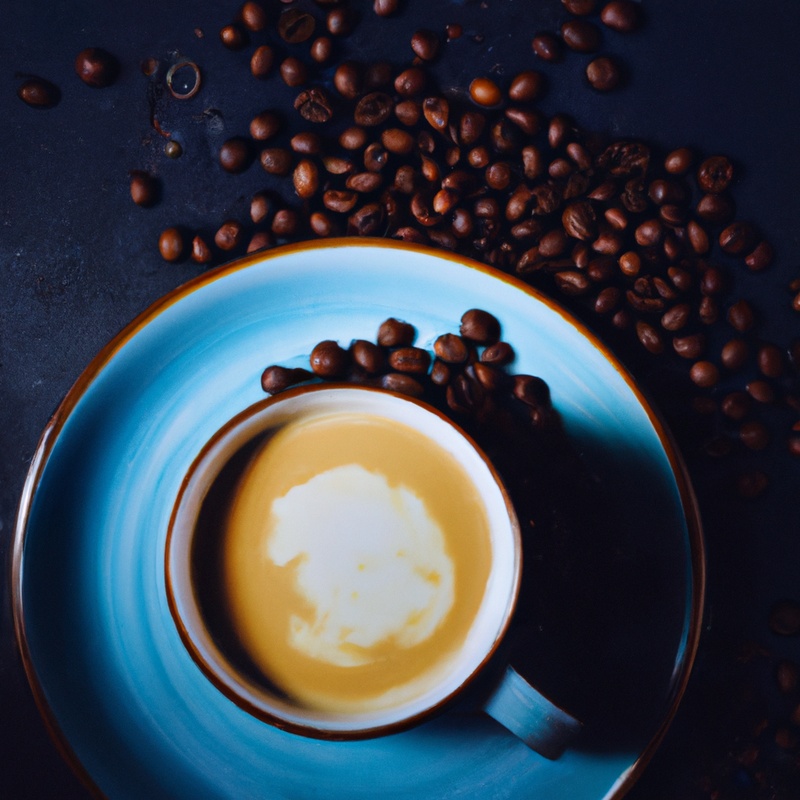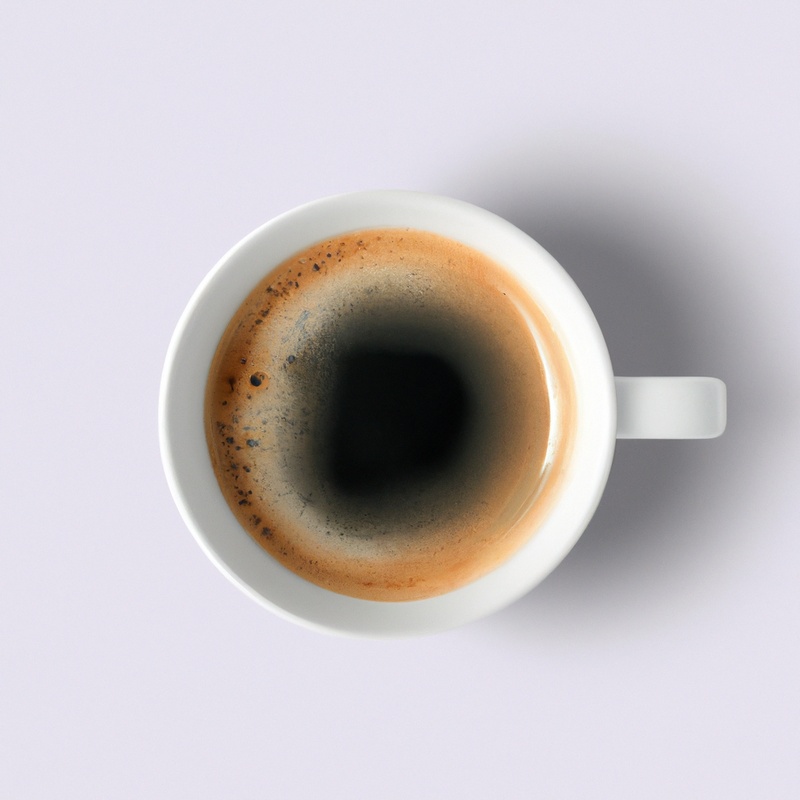Key Takeaways:
- Any type of coffee can be used to make cold brew, but a coarse grind is recommended.
- Darker roasts tend to result in a bolder flavor profile, while lighter roasts offer a more nuanced taste.
- To avoid bitter notes in your cold brew, use a longer steeping time and a higher coffee-to-water ratio.
- Experiment with different coffee beans and brewing techniques to find your preferred cold brew taste.
Are you a coffee enthusiast searching for that perfect summer drink to beat the heat? Look no further than cold brew coffee.
But here’s the burning question: do you need special coffee for this refreshing beverage?
Well, get ready to discover the truth because I’m about to spill the coffee beans. In this article, we’ll delve into the definition and process of cold brew coffee-making, explore how it differs from regular coffee, and answer the ultimate question: can you use regular coffee for cold brew?
So, grab a cup of joe and let’s dive in!
What is Cold Brew Coffee?
Cold brew coffee is made by steeping coffee grounds in cold water for an extended period of time, resulting in a smooth and less acidic flavor.
Definition and Process of Cold Brew Coffee Making
Cold brew coffee is made by steeping coarsely ground coffee beans in cold water for an extended period of time, usually overnight. This slow extraction process results in a smooth and less acidic coffee concentrate.
To make cold brew coffee, you’ll need a ratio of 1 part coffee to 4 parts water, a container, and a strainer.
Simply combine the coffee and water in the container, stir, and let it steep in the refrigerator for 12-24 hours. After steeping, strain the mixture to remove the coffee grounds, and your cold brew coffee is ready to enjoy over ice!

Why Cold Brew Coffee is Trending
Cold brew coffee is trending because it offers a smooth, less acidic taste compared to traditional brewing methods.
It’s also a convenient way to make coffee in advance and enjoy it cold.
The slow extraction process brings out different flavor notes, making it a favorite among coffee enthusiasts.
Cold brew is also versatile and can be used as a base for various coffee beverages like lattes and iced coffees.
Its popularity has grown as people seek refreshing and unique coffee experiences.
How Does Cold Brew Differ from Regular Coffee?
Cold brew and regular coffee differ in their brewing method and flavor intensity.
Differences in Brewing Method
Cold brew and regular coffee differ in their brewing methods.
For regular coffee, hot water is poured over ground coffee beans, usually in a drip or espresso machine.
The hot water quickly extracts the flavor and oils from the beans, resulting in a brewed cup of coffee in a matter of minutes.
On the other hand, cold brew coffee is made by steeping coarsely ground coffee beans in cold water for an extended period, typically 12 to 24 hours.
The slow extraction process produces a smoother, less acidic beverage with a distinct flavor profile.
So, the main difference lies in the temperature and time of brewing.
Regular coffee uses hot water and takes only a few minutes, while cold brew requires cold water and several hours to develop its unique taste.
Flavor and Strength Comparison
Flavor and strength play key roles in the distinction between cold brew and regular coffee.
Cold brew tends to have a smoother, less bitter flavor profile compared to regular coffee, which can be more acidic.
The slow extraction process of cold brew brings out subtle flavors and reduces the harshness.
In terms of strength, cold brew is usually more concentrated than regular coffee, requiring dilution with water or milk.
However, strength can be adjusted based on personal preference.
Ultimately, the choice between cold brew and regular coffee depends on your taste preferences and desired caffeine levels.

Can I Use Regular Coffee for Cold Brew?
Yes, you can use regular coffee for cold brew.
Factors to Consider when Choosing Coffee for Cold Brew
When choosing coffee for cold brew, keep in mind the following factors:
- Coarseness: Opt for a coarse grind to allow for maximum flavor extraction without over-extracting bitter compounds.
- Origin and Roast: Experiment with different origins and roast levels to find the flavor profile that suits your taste preferences.
- Freshness: Choose freshly roasted coffee beans as they retain more flavor. Look for a roast date on the packaging.
- Bean Quality: Select high-quality, specialty-grade beans for a superior taste experience.
- Taste Notes: Consider the flavor characteristics mentioned on the coffee packaging. Look for flavors that you enjoy, such as chocolatey, fruity, or nutty notes.
Remember, finding the perfect coffee for cold brew is a matter of personal preference, so feel free to explore and find what works best for you.

Tips for Choosing the Right Coffee for Cold Brew
When choosing coffee for cold brew, consider the following:
- Coarse grind: Opt for a coarse grind, as it allows for a longer brew time and prevents over-extraction.
- Single-origin: Single-origin coffees offer distinct flavors that can enhance your cold brew experience.
- Medium to dark roast: Medium to dark roasted beans tend to bring out bold flavors and minimize acidity.
- Quality matters: Choose high-quality coffee beans for the best taste in your cold brew.
- Experiment: Don’t be afraid to try different coffees to find your preferred flavor profile.
- Freshness: Use freshly roasted beans to maximize the flavor potential of your cold brew.
Remember, the right coffee can make all the difference in your cold brew, so have fun exploring various options!
Recommended Coffee for Cold Brew
When it comes to recommended coffee for cold brew, opt for a coarsely ground variety to achieve the best results.
Types of Coffee Beans for Cold Brew
For cold brew coffee, it’s best to choose coffee beans that have certain characteristics.
Here are some types of coffee beans that work well for cold brew:
- Arabica beans: These are known for their smooth and balanced flavors, making them a popular choice for cold brew.
- Dark roast beans: Darker roasts tend to have stronger flavors that can withstand the longer brewing process of cold brew.
- Single-origin beans: If you want to explore different flavors, try using beans from a specific region or farm. This can enhance the complexity of your cold brew.
- Coarsely ground beans: When brewing cold brew, it’s important to use a coarse grind. This helps to prevent over-extraction and creates a smooth, less bitter flavor.
Remember, the type of coffee beans you choose will greatly affect the taste of your cold brew.
Experiment with different varieties to find your personal preference.
Enjoy your refreshing cup of cold brew!
Highlighting the Flavor Profiles of Different Coffee Beans
Different coffee beans have unique and distinct flavor profiles. Some beans have a bold and robust taste, while others are more delicate and nuanced.
For example, Arabica beans often have a smooth and balanced flavor with hints of fruit or chocolate.
On the other hand, Robusta beans are known for their strong, bitter taste. Specialty beans, like Ethiopian Yirgacheffe, offer complex flavors such as floral, fruity, and even wine-like notes.
Ultimately, the flavor profile of coffee beans depends on their origin, processing method, and roasting technique.
Frequently Asked Questions
Can I Use Instant Coffee for Cold Brew?
Yes, you can use instant coffee for cold brew.
Instant coffee is a convenient option for making cold brew because it dissolves easily in cold water.
Just mix it with water and let it steep in the fridge overnight.
However, keep in mind that the flavor and quality of the final brew may not be as rich and robust compared to using freshly ground coffee beans.
It’s a matter of personal preference, so give it a try and see if you enjoy the results!
Can I Use Flavored Coffee for Cold Brew?
Yes, you can absolutely use flavored coffee for cold brew! The beauty of cold brew is that it extracts the flavors from the coffee beans slowly over time, resulting in a smooth and less acidic brew. This means that the flavors from the coffee will still come through, even if you’re using a flavored variety.
Just keep in mind that the flavor may be more subtle compared to brewing it hot.
Give it a try and see how you like it!
How Long Should I Steep My Cold Brew Coffee?
To get the best flavor from your cold brew coffee, steep it for 12 to 24 hours. This longer steeping time allows the coffee grounds to fully infuse the water, resulting in a smooth and less acidic brew.
Experiment with different steeping times to find your preferred strength.
Once steeped, strain the coffee and dilute it with water or milk to taste. Enjoy!
Final Verdict
While you don’t necessarily need special coffee for cold brew, it is crucial to choose the right coffee beans that can enhance the flavors and produce a smooth and balanced brew. Factors like grind size, origin, and roast level play a significant role in achieving the desired results.
Opting for coarse ground, medium to dark roasted beans, preferably with chocolatey or nutty profiles, can yield outstanding cold brew.
Remember to experiment and adjust the steeping time to suit your preferences. By following these tips, you can enjoy the perfect cup of cold brew coffee at home.
